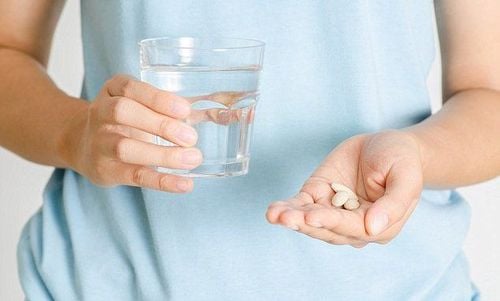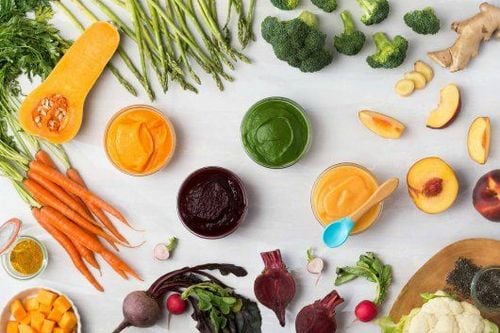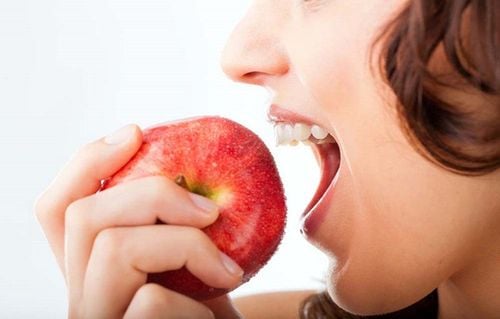This article is professionally advised by Master, Doctor Nguyen Minh Tuan - Pediatrician - Department of Pediatrics & Neonatology - Vinmec International General Hospital Da Nang.
Zinc is an essential mineral for health. It plays a role in many metabolic processes, supports the immune system, and helps the growth and repair of body tissues. Since the body does not store zinc, it is important to consume the required amount of this mineral each day. Below are the 10 best foods that are high in zinc.
1. Meat
Meat is an excellent source of zinc, especially red meat. However, zinc is present in almost all types of meat, including beef, lamb and pork. In fact, a 100-gram serving of beef contains 4.8mg of zinc, which accounts for 44% of the daily zinc requirement. Additionally, this amount of meat provides 176 calories, 20 grams of protein and 10 grams of fat. Along with these benefits, it is also a rich source of other important nutrients such as iron, vitamin B and creatine.
It is important to note that consuming large amounts of red meat, especially processed meats, has been linked to an increased risk of heart diseases and cancers. However, as long as you eat minimally processed meats and avoid consuming unprocessed red meat in combination with a diet rich in fruits, vegetables, and fiber, it should not be a concern.
2. Shellfish
Shellfish such as oysters, crabs, clams, mussels, etc. are foods rich in zinc and low in calories. Especially oysters, with 6 medium-sized oysters providing 32 mg of zinc, which is equivalent to 291% of daily zinc requirement. In 100 grams of Alaska crab, there is 7.6 mg of zinc, which accounts for 69% of our daily zinc requirement. Other smaller shellfish such as shrimp and scallops are also good sources of zinc. However, for pregnant individuals, it is important to ensure that shellfish are completely cooked before consumption to minimize the risk of foodborne illness.
3. Legumes
Legumes such as green beans, lentils, etc. , contain a significant amount of zinc. In fact, 100 grams of cooked lentils contain about 12% of the body’s daily zinc requirement. However, it also contains phytates, which are anti-nutrients that inhibit the absorption of zinc and other minerals. This means that zinc from legumes is not as easily absorbed as zinc from animal-based foods. Despite this, legumes remain an important source of zinc, especially for those following a vegetarian or meat-free diet. Legumes are also an excellent source of protein and fiber and they can easily be added to soups, stews and salads. Soaking or fermenting sprouted beans can increase the bioavailability of this mineral.
4. Seeds and Nuts
Nuts are a healthy addition to the diet and can help increase zinc intake for those who consume them. However, the zinc content varies between different types of nuts. For example, 30 grams of hemp seeds provide about 31% and 43% of the recommended daily zinc intake for men and women. Additionally, other seeds such as pumpkin seeds and sesame seeds contain significant amounts of zinc. Besides boosting zinc intake, seeds also contribute fiber, healthy fats, vitamins and minerals. They also help lower cholesterol and blood pressure. Therefore, they make an excellent food supplement to your diet. To enrich your meals, you can add hemp seeds, flaxseeds, pumpkin seeds, or sesame seeds to salads, soups, yogurt, or other foods.
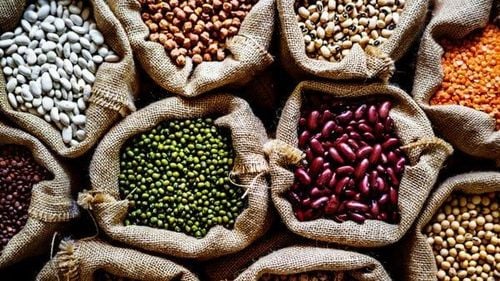
5. Dried nuts
Dried nuts such as pine nuts, peanuts, cashews, and almonds contain a significant amount of zinc. In addition, they also provide other healthy nutrients, including fats, fiber, as well as various vitamins and minerals. If you are looking for a nut high in zinc, cashews are a great option. A 28-gram serving of cashews contains 15% of the body’s daily zinc requirement. Nuts are also a quick, convenient snack and have been linked to a reduced risk of several diseases, including heart disease, cancer and diabetes. Furthermore, people who eat nuts tend to live longer than those who do not. Therefore, they make a great addition to your diet.
6. Milk
Foods like cheese and milk provide a range of nutrients, including zinc. Both milk and cheese are notable sources of zinc. In addition, the zinc found in milk and cheese is highly bioavailable, meaning most of the zinc in these foods can be absorbed by the body effectively. For example, 100 grams of cheddar cheese contains about 28% of daily zinc requirement, while a cup of whole milk provides about 9% of daily zinc requirement. Moreover, these foods come with other nutrients considered important for bone health, including protein, calcium, and vitamin D.
7. Eggs
Although eggs are not as high in zinc as some other foods, eggs can still contribute to your zinc intake, one large egg contains 5% of the daily zinc requirement. It also provides 77 calories, 6 grams of protein, 5 gram of healthy fat and vitamins, including vitamin B and selen. Whole egg are also an important source of choline, a nutrient that many people are deficient in.
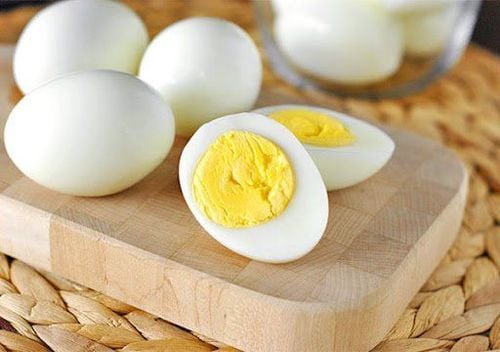
8. Whole Grains
Whole grains such as wheat, quinoa, rice and oats contain zinc. Like legumes, grains also contain phytates, which reduce the body’s ability to absorb zinc. Whole grains have more phytates than their refined versions and may provide less zinc as a result. However, eating whole grains is better for overall health, as they also provide many important nutrients such as fiber, vitamin B, magnesium, iron, phosphorus, manganese and selenium. In fact, consuming whole grains is linked to increased longevity and other health benefits, including reduced risk of obesity, type 2 diabetes and heart disease.
9. Certain vegetables
Generally, fruits and vegetables are not rich sources of zinc. However, there are still small amounts of zinc that can contribute to our daily needs, especially for those who do not eat meat. One potato contains about 1 mg of zinc, which accounts for 9% of the daily zinc requirement. Other vegetables like green beans and kale contain even less, about 3% of daily need per 100 grams. While they don’t contain much zinc, a diet high in vegetables and fruits is linked to a reduced risk of chronic diseases like heart disease and cancer.
10. Dark chocolate
Surprisingly, dark chocolate contains a reasonable amount of zinc. In fact, a 100-gram bar of dark chocolate contains 3,3 mg of zinc, providing 30% of the daily zinc requirement. However, 100 grams of dark chocolate also contains up to 600 calories. While you can get some additional nutrients from eating dark chocolate, it is not a food you should consume in large amounts to meet your body’s zinc needs.
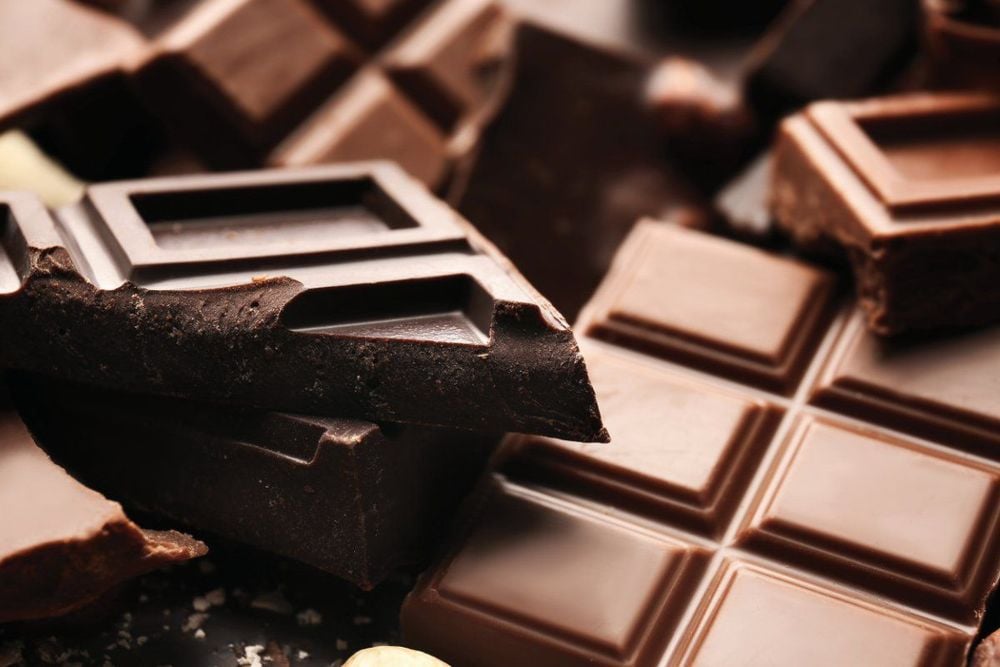
11. What are the benefits of zinc?
Zinc plays a crucial role in several body functions, including:
- Supporting Growth: Zinc is essential for physical growth and development. A zinc deficiency can lead to impaired growth in children and adolescents.
- Boosting immune system function: our body uses zinc to build immune system cells called T lymphocytes
- Enhancing enzyme function: zinc is vital in activating chemical reactions in the body. This includes helping the body utilize folic acid and producing new protein and DNA.
- Supporting Eye Health: A zinc deficiency can contribute to the development of eye conditions, including macular degeneration (eye condition that causes vision loss).
- Promoting Wound Healing: Zinc helps promote healthy skin and mucous membranes, enhancing the body’s ability to heal wounds.
Zinc is an essential mineral for maintaining overall health. Some individuals are at higher risk of zinc deficiency, including young children, teenagers, the elderly, and pregnant or breastfeeding women. The best way to supplement zinc is through a varied diet with good sources of zinc, such as meat, seafood, nuts, legumes, and milk.
To arrange an appointment, please call HOTLINE or make your reservation directly HERE. You may also download the MyVinmec app to schedule appointments faster and manage your reservations more conveniently.
References: healthline.com, medicalnewstoday.com, webmd.com






